Outstanding Financial Counseling or Planning Center Award
This award goes to a financial counseling or planning center that has demonstrated its effectiveness in its local community.
The center is responsive to target audience needs and provides materials and delivery of services that are in tune with its audience. The evidence of its impact is widespread, and other centers can learn from or adapt this program to effectively support clients.
2024 Outstanding Financial Counseling or Planning Center Award:
Virginia Commonwealth University Financial Success Center by Virginia Credit Union
We are now accepting nominations! Please submit your nominations no later than July 14, 2025. Please check back at that time to apply. You may view the application questions here to help you prepare!
AFCPE endeavors to make our awards process accessible to any and all users. If you require assistance regarding the accessibility of the application, or if you would like to request an accommodation to participate in the application process, please contact us at awards@afcpe.org.
Congratulations to Past Winners of the Outstanding Financial Counseling or Planning Center Award!
2024: Virginia Commonwealth University Financial Success Center by Virginia Credit Union
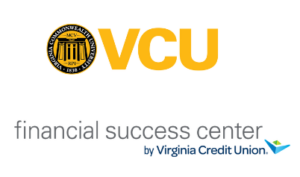
This center promotes financial literacy, debt reduction, and stability through workshops, webinars, and one-on-one guidance. Serving students and the Richmond community, it addresses financial challenges and builds strong money management skills, empowering individuals to achieve financial success.
2023: Kansas State University – Powercat Financial
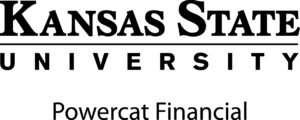
Powercat Financial is a unit within the Student Life division of Kansas State University managed under the AVP of Student Wellbeing. The program is designed as a peer-to-peer program where students studying in a financial-related or helping profession program assist fellow students with budgeting, saving, credit, student loan repayment, and transitioning to work.
2023 Nominee:
Financial Education Associates
2022: Brunch & Budget®
Pamela Capalad, CFP®, AFC®
 Pamela Capalad is a Certified Financial Planner™ and Accredited Financial Counselor™ and has been in the financial services industry since 2008. She founded Brunch & Budget to help people who felt ashamed or embarrassed about money have a safe and friendly place to talk about it and make real financial progress. Her mission is to make financial planning as affordable as possible for the communities that need it most.
Pamela Capalad is a Certified Financial Planner™ and Accredited Financial Counselor™ and has been in the financial services industry since 2008. She founded Brunch & Budget to help people who felt ashamed or embarrassed about money have a safe and friendly place to talk about it and make real financial progress. Her mission is to make financial planning as affordable as possible for the communities that need it most.
Brunch & Budget is committed to providing financial planning & coaching through a racial wealth equity lens through all its services and lives by its core values – empower and advocate, celebrate don’t sugarcoat, be fanatical about getting it right, and practice radical acceptance. They aim to be the catalyst for a power shift and believe personal finance is a revolutionary act.
2020: Texas Tech University Red to Black® Peer Coaching
Dorothy Durband, Ph.D., AFC® and Tiffany Murray, MS, AFC®
Red to Black® Peer Financial Coaching is a unit within the Texas Tech University (TTU) Center for Campus Life and a student organization. The unique dual role as a unit and student organization allows Red to Black to operate with the support of a university department as well as provide the student members with opportunities for personal and professional development. We recognize the importance of educating college students on responsible financial behavior. Our members are a select group of undergraduate, master’s, and Ph.D. students majoring in personal financial planning. Our purpose is to empower students to achieve their financial objectives; our goal is help students move out of the red and into the black in their personal finances.
is a unit within the Texas Tech University (TTU) Center for Campus Life and a student organization. The unique dual role as a unit and student organization allows Red to Black to operate with the support of a university department as well as provide the student members with opportunities for personal and professional development. We recognize the importance of educating college students on responsible financial behavior. Our members are a select group of undergraduate, master’s, and Ph.D. students majoring in personal financial planning. Our purpose is to empower students to achieve their financial objectives; our goal is help students move out of the red and into the black in their personal finances.
2019: Austin Community College Student Money Management Office
Karen Serna, AFC®, Director
 Austin Community College is an 11-campus district with an enrollment of about 40,000 students. The Student Money Management Office at ACC was established in 2016 as a strategy to increase retention and graduation and reduce the Cohort Default Rate. Last academic year, over 12,000 students participated in the robust text messaging program, nearly 4K students participated in a financial education workshop, 95 students collectively saved more than $43K in our incentivized savings program, and over 50 students received one-on-one financial coaching. The Student Money Management Office is housed at one of ACC’s campuses and has four full-time staff members. austincc.edu/money
Austin Community College is an 11-campus district with an enrollment of about 40,000 students. The Student Money Management Office at ACC was established in 2016 as a strategy to increase retention and graduation and reduce the Cohort Default Rate. Last academic year, over 12,000 students participated in the robust text messaging program, nearly 4K students participated in a financial education workshop, 95 students collectively saved more than $43K in our incentivized savings program, and over 50 students received one-on-one financial coaching. The Student Money Management Office is housed at one of ACC’s campuses and has four full-time staff members. austincc.edu/money
2018: Utah Valley University Money Management Resource Center
Ryan Law, CFP®, AFC®, Money Management Resource Center Director
 The Utah Valley University Money Management Resource Center (MMRC) was established in 2015 with the mission to help students stay in school, graduate with minimal debt, and learn sound financial skills for the future. Since that time the center has established solid ties with campus and community partners to reach an ever-growing number of individuals. A conservative estimate of the number of students reached in 2017-2018 is 6,000. That means in one year, about 6,000 students received help to solve their own money troubles, answer their money questions or simply become aware of the services available through the center. At its very soul of service is a student-centric philosophy: providing services to educate and empower students, while offering opportunities for twenty-five students to serve as volunteer financial coaches. As coaches, students facilitate one-on-one financial counseling appointments, deliver presentations in classrooms, complete marketing activities, and mentor other students in the program. In 2017-2018 alone, coaches volunteered over 4,000 hours. While the MMRC is conveniently located on campus for easy access to services, its team will engage students wherever they are – in classrooms, online, student organization meetings, and in the hallways. Student success begins at the MMRC.
The Utah Valley University Money Management Resource Center (MMRC) was established in 2015 with the mission to help students stay in school, graduate with minimal debt, and learn sound financial skills for the future. Since that time the center has established solid ties with campus and community partners to reach an ever-growing number of individuals. A conservative estimate of the number of students reached in 2017-2018 is 6,000. That means in one year, about 6,000 students received help to solve their own money troubles, answer their money questions or simply become aware of the services available through the center. At its very soul of service is a student-centric philosophy: providing services to educate and empower students, while offering opportunities for twenty-five students to serve as volunteer financial coaches. As coaches, students facilitate one-on-one financial counseling appointments, deliver presentations in classrooms, complete marketing activities, and mentor other students in the program. In 2017-2018 alone, coaches volunteered over 4,000 hours. While the MMRC is conveniently located on campus for easy access to services, its team will engage students wherever they are – in classrooms, online, student organization meetings, and in the hallways. Student success begins at the MMRC.
2017: University of North Texas Student Money Management Center
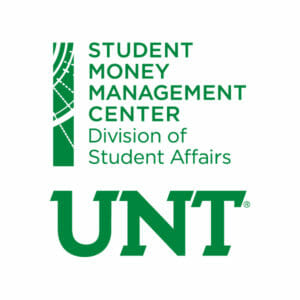 Paul Goebel & Rachel Grimes
Paul Goebel & Rachel Grimes
Research has shown that students are more likely to drop out of school because of “outside pressures” – such as finances and employment pressures – than poor grades. The University of North Texas created the Student Money Management Center (SMMC) in the fall of 2005 with the goal of streamlining all financial literacy education services under the oversight of one dedicated office serving as a single point of entry to eliminate frustrations and confusion among students seeking support, counsel and guidance. Since its inception, the center has served more than 96,000 students, individuals, families, and community members. Through the efforts of a dedicated team, students, families, and community members are gaining the confidence and knowledge needed to successfully manage their financial lives. In addition, the center’s leadership team readily and freely shares materials, resources, and guidance to AFCPE members, practitioners, and educators. Since 2008, more than 375 institutions of higher learning and practitioners have reached out to the center to learn how to create and replicate programs and services. Today the center continues to serve with distinction the mission of AFCPE and the criteria of this award through its ever-growing array of innovative programs and services.
2016: Merrimack College Financial Capability Center
Ana Silva
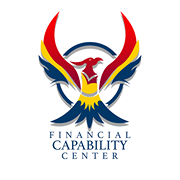
The Financial Capability Center is a partnership between Merrimack College in North Andover, MA, and ACT Lawrence, a community development corporation that provides bilingual financial education, coaching and counseling services to the low-income, mostly Latino, residents of the City of Lawrence, MA. The goals of the Center are: 1) to provide Merrimack College students with the knowledge, skills, practice, and confidence necessary to become effective financial coaches; 2) to increase financial stability for low-income and underserved individuals and households in Lawrence through building financial capability, and 3) to promote financial inclusion and healthy financial behaviors on campus and in the larger community through education, coaching, participatory action research, and outreach.
2015: University of Utah Personal Money Management Center
Ann House
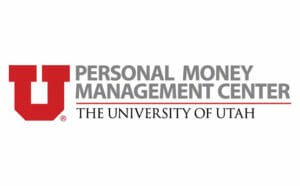
When the University of Utah was designing their student money management center, they turned to best practices and recent bodies of academic research to guide them. With a nod to the national statistics, in 2011 Utah began the center based on reducing student debt, and keeping default and delinquency rates low. They are the recipients of this year’s award much in part to their ability to collaborate with campus and community partners, their accessible and creative outreach to students and their focus on a variety of delivery systems to meet the needs and learning styles of a diverse campus of students.
The center is one of the oldest student money management centers and has become a model for other college centers. Under Ann’s guidance, since 2011, the center has grown to a staff of nine, now has its own suite of offices in the Student Union building and reaches more than 20,000 students each semester through face to face contacts, events, and workshops.
Comments are closed.